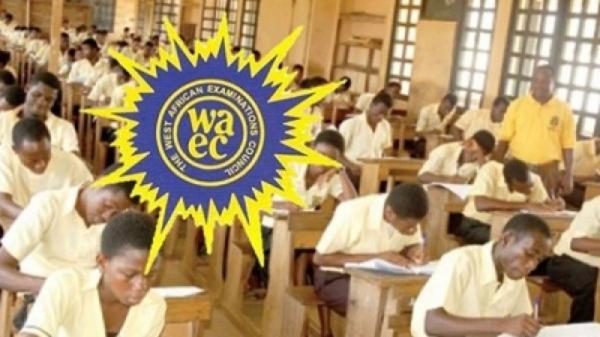
Dr Victoria Akintoye
With the freefall in the educational system becoming more distressing, experts revealed that poor memory retention is another worrying factor among students. ANUOLUWA BABALOLA examines the causes of this anomaly among other things.
Education is said to be a companion that no misfortune can depress, no enemy can alienate and no nepotism can enslave. The weight of this statement reflects on how education could singlehandedly prove to a worthy investment that could stand the test of time.
Over the years, education system has gone from near excellence to a state of mediocre, apart from the decay in structure and standard of learning, the level of commitment of learners have also been below par.
With many people pointing accusing fingers to corruption and neglect in high places, others have identified the low quality of teachers as the strong factor for poor performance among students. But in all these, experts have also identified the lack of commitment among students as a major reason for poor performances.
One interesting fact noticeable among professional teachers is how they recall almost all they were taught while they were students; some of them would not only boast about but there still having the materials they used in the time past, they also flaunt how intact the notes were. These days, an average student would hardly remember where he kept some of the materials he used in the previous session, needless to say presenting them wholly.
Dr Mrs Victoria Akintoye, an educationist while describing education system in Nigeria said: ‘‘Generally, education system in Nigeria is not encouraging, its performance is below expectation. The attitudinal aspect of learners is worthless and comparison between those that are ready to the entire population of students is towards zero level.’’
She added that this makes the general percentage of students in Nigeria low because there is high percentage of uncooperative learners compared to the cooperative ones.
While pointing out the gap between education in the past and today, is very wide, Dr Victoria said: ‘‘during our time, though technologically, we were not advanced, but then, the consciousness we displayed is high and proportionally related to why we are learners. We had focus, but the direct relationship between consciousness of learners and what they have to learn, makes impacting knowledge in them difficult.
‘‘the percentage of cooperative ones is minimal, they are those that are lucky, attentive and have supportive homes.’’
Reacting to the issue of unwillingness and reluctance among learners, a lecturer at Ladoke Akintola University (LAUTECH) who choose to remain anonymous said the system is moribund and nothing seemed to be working again. He continued: “When you ask yourself some questions, you begin to appreciate the extent of decadence in our educational system.”
In the quest of knowing the factors responsible for the low percentage of education system in Nigeria, Dr Victoria stressed that children grew and developed by chance. Adding that, they are been carried forward and backward with waves of the society. She thereby classified these set of children as ‘freelance learners’.
Waves of the society, according to her are; social media, homes, environment, peer group among others.
In her words, ‘‘social media has successfully eroded learning culture, reading culture and student’s readiness.’’
Also, she pointed out that government is one of the factors hindering a good education system in the country. “National Youth Service Corps (NYSC) scheme population is increasing but not as productive as before. A situation when corpers are been imposed on teaching, what result do you think that would yield? The end result is zero experience. Government should make corpers responsible and effective in their area of specialisation to have a sound education system because teaching has procedures which they might not have been exposed to base on their specialisation.’’
Furthermore, the lecturer enthused: “Many factors from fundamental to superficial are responsible for low percentage. Most students skipped proper well balanced primary education and that is fundamental, yes, they passed through primary school but primary education didn't pass through them.
“The primary education is where the foundation is laid and when that is not there, what do you build on?
“Go to public primary schools and see how students’ life and future are being destroyed even before they begin. Private schools are not better either because they try to paint good picture to impress parents.”
He stressed further, “Technologically, students are distracted through the social media, only God knows the number of soft movies students have housed in their mobile devices. Then how do you face your study or remember what you have learned?”
In improving the current education system in the country, Dr Victoria urged government to put measures in place to make all sectors experience transformation. In her word, “Corruption is our problem; the money to make the difference is in the pockets of our leaders.’’
According to the lecturer, “Primary school leavers of two or three decade ago can ace the so called graduates we have today. The system needs thorough overhauling especially at primary school level, alongside up to date curriculum, good funding, and qualified tutors, among others.”
In making transformation, experts agreed that while implementing changes, all quotas have responsibilities.
Dr Victoria however urged teachers at the primary and secondary level to commence this transformation by updating themselves, having superb system of evaluation of instruction, high disciplinary tone and see failure as ‘do it better act’ and not a shameful one.
To the lecturer at the tertiary level she said, more attention should be given to teaching style and discipline.
Also, students should surpass classroom learning by putting innovation and creativity in their career.
Parents are to make needed materials available for their wards, monitor and set standard for them.
The lecturer however opined that significantly, government should provide enabling structure and funding, students should get more serious and productive while parents should ensure their wards have appropriate education and not encourage them with examination malpractice.






















